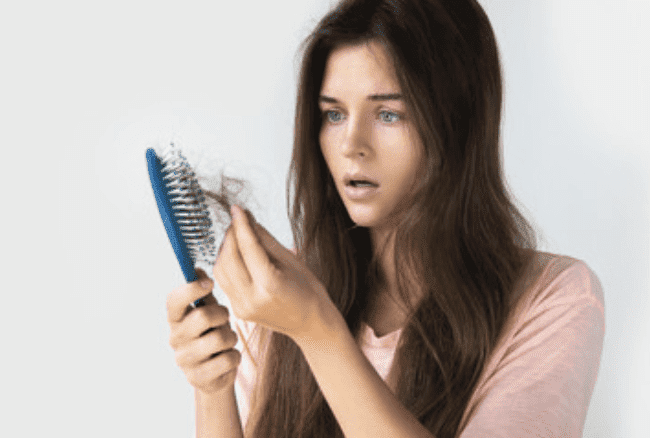What’s the difference between medicated and organic hair loss solutions

A common worry that affects a great deal of people worldwide is hair loss, which prompts many to search for effective medications to regrow their hair. Determining the most suitable approach for oneself can be challenging due to the abundance of options, ranging from herbal remedies to prescription drugs. This article investigates the critical contrasts among sedated and natural Hair loss arrangements, giving experiences to assist you with settling on an educated choice while looking for “hair restoration near me” or investigating choices for “Hair medical restoration.”
Grasping Sedated Hair Loss Arrangements
What Are Cured Balding Medicines?
Cured Hair loss therapies include the utilization of drug items intended to treat balding at the main driver, frequently by tending to basic ailments or hormonal irregular characteristics. These medicines are regularly endorsed by a medical care supplier and can be utilized for different sorts of balding, including androgenetic alopecia (male or female example hairlessness), alopecia areata, and telogen exhaust.
Common Drug Treatment Options
Minoxidil (Rogaine): Minoxidil, often known as Rogaine, is a topically administered solution that stimulates hair follicles, promoting hair growth and delaying hair loss. It is available over-the-counter and is typically used for example sparseness in both male and female examples.
Finasteride (Propecia): Finasteride, often known as Propecia, is an oral medication that inhibits the production of dihydrotestosterone (DHT), a substance linked to hair loss. It is commonly recommended for males and is effective in promoting hair growth and preventing more baldness.
Corticosteroids: These anti-inflammatory injections or topical treatments can be used to treat alopecia areata. They help lessen the inflammation that damages hair follicles.
Treatment with Platelet-Rich Plasma (PRP): To stimulate hair growth and repair damaged follicles, a group of the patient’s own platelets are infused into the scalp.
Benefits of Medicated Treatments for Hair Loss
Clinically Demonstrated: Clinical studies are frequently used to back up medication treatments, and regulatory bodies like the FDA often approve them.
Designated Activity: Specific causes of hair loss, such as hormonal imbalances or autoimmune conditions, are the focus of these treatments.
Faster outcomes: Sedated medicines can convey noticeable outcomes within a couple of months, making them a favored decision for those looking for faster results.
Potential Drawbacks
side effects: Side effects like irritated scalp, infertility, or unwanted hair growth in other areas may occur with some medications.
Remedy Required: Many cured medicines require a remedy, meaning you’ll have to counsel a medical services supplier before beginning the therapy.
Maintenance: Stopping the treatment can result in a reoccurrence of hair loss, and continuous use is frequently required to maintain results.
Investigating Organic Hair Loss Solutions
What Are Natural Hair Loss Medicines?
Natural Hair loss arrangements are medicines gotten from normal fixings, frequently liberated from engineered synthetics and additives. Using the power of nature, these treatments aim to nourish the scalp, strengthen hair follicles, and encourage hair growth. They are normally showcased as a gentler, comprehensive option in contrast to sedated medicines.
Normal Kinds of Natural Medicines
Natural balms: Hair follicles are said to be nourished, and scalp blood circulation is enhanced by oils such as lavender, peppermint, and rosemary, both of which are important for hair development.
Medicinal Herbs: Well-known supplements, including saw palmetto, biotin, and nettle root, are known to support healthy hair and inhibit DHT.
Vera Gel: Known for its calming properties, aloe vera can lessen scalp irritation and establish a solid climate for hair development.
Rich in sulfur, onion juice is marketed as having the ability to stimulate hair follicles and reduce hair thinning.
Natural components in organic hair loss: The use of natural components in organic hair loss treatments has the potential to reduce the likelihood of adverse responses or side effects.
All-encompassing Methodology: These treatments often address the general health of the hair and scalp, rather than only addressing the symptoms of hair loss.
Ecologically benign: Individuals that are concerned about their environmental footprint will discover that organic items are usually more sustainable and kind to the earth.
Possible Disadvantages
More slow Outcomes: Natural medicines might take more time to show results compared with cured choices, as they work all the more steadily.
Less restrictions: Unlike medicinal cures, natural remedies typically do not require extensive testing or approval from regulatory agencies, which makes it more difficult to assess their suitability.
Diverse Efficiency: Generally speaking, the effectiveness of natural remedies varies from person to person, and what works for one person might not work for another.
Selecting the Appropriate Hair Loss Therapy
Consider your individual needs, tastes, and the underlying reason of your hair loss while deciding between pharmaceutical and natural hair loss therapies.
Variables to Consider
Seriousness of Hair Loss: For more serious or fast balding, sedated medicines might be more viable. For milder cases, natural arrangements might do the trick.
Wellbeing and Way of life: Organic treatments might be a better option for you if you prefer a natural, holistic approach or are concerned about potential side effects.
Consultation with an Expert: Before beginning any treatment, it is always a good idea to speak with a medical professional or a specialist in hair medical restoration. They can assist with diagnosing the reason for your balding and suggest the most appropriate treatment choices.
Conclusion: Tracking Down the Best Balding Treatment
Whether you pick a cured treatment or a natural arrangement, the way to an effective medical hair restoration is by tracking down a treatment that works for you. On the off chance that you’re not kidding “Hair loss treatment near me,” consider investigating the two choices and talk with an expert to decide the best game-plan. Keep in mind, the journey to reestablishing your hair can take time and persistence, however with the right methodology, you can accomplish the outcomes you want and recover your certainty.